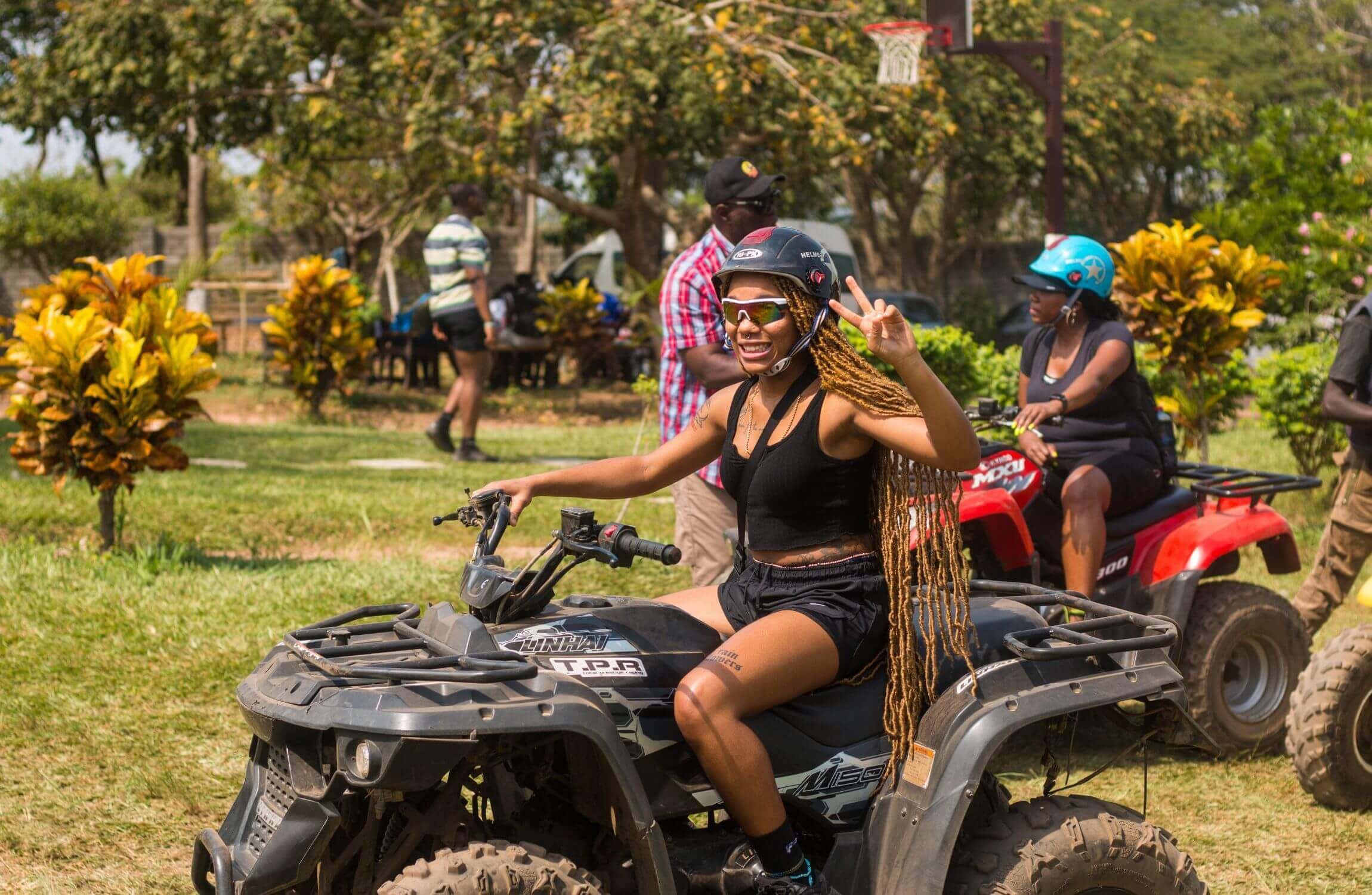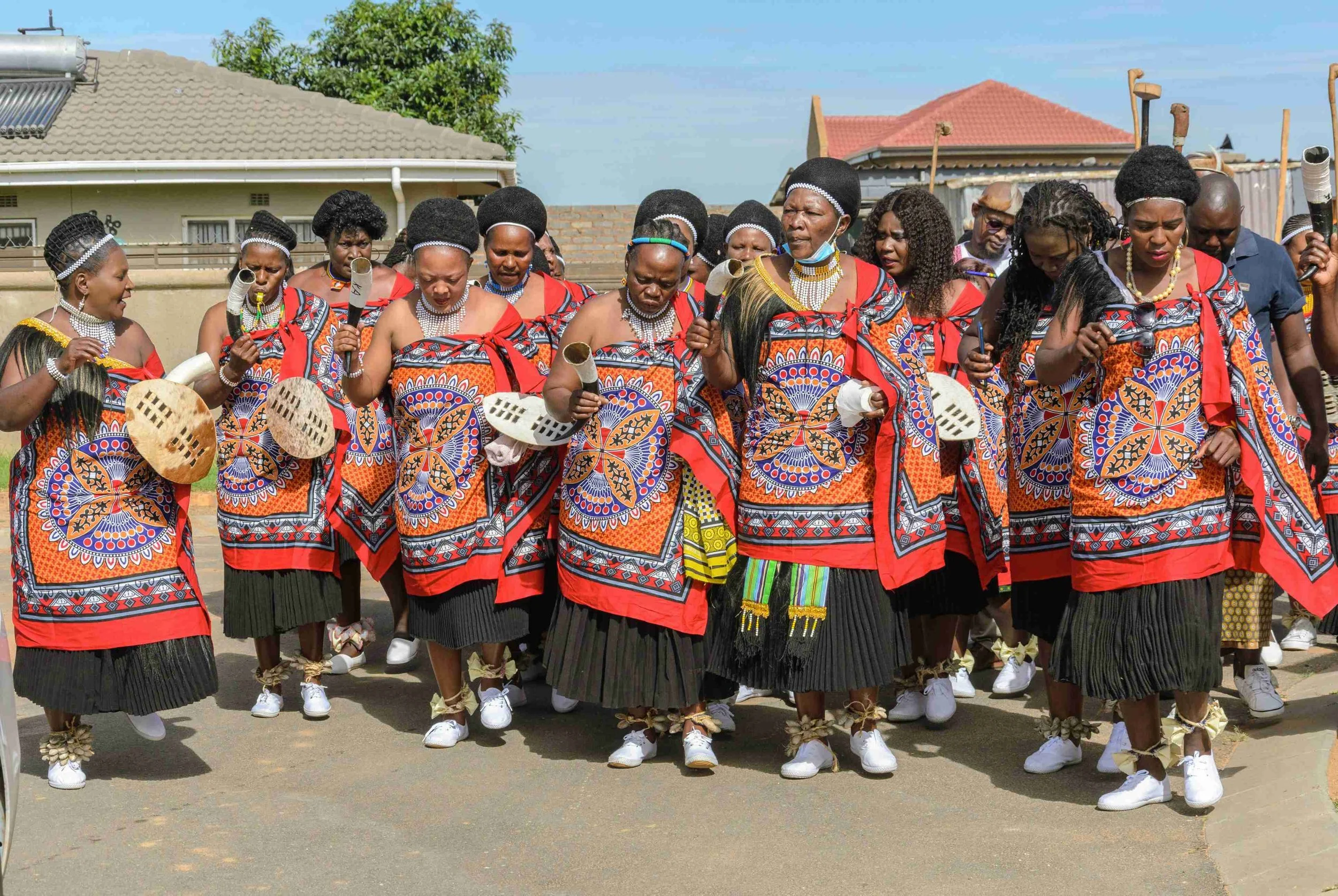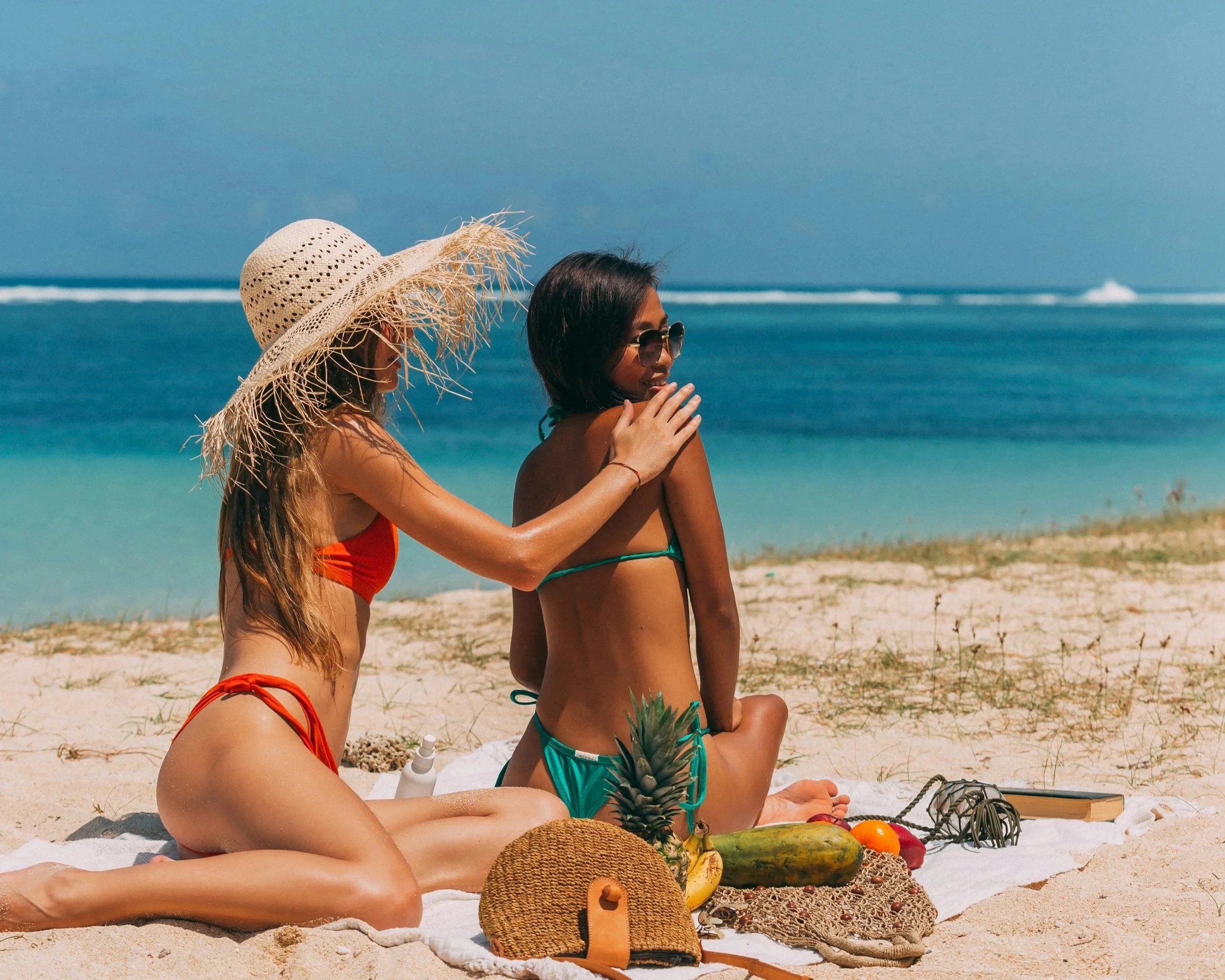Top 10 Day Tours in Ghana
Many travelers opt for day tours in Ghana rather than longer excursions due to time constraints when traveling. Even with limited time, there are still a variety of ways to experience the rich culture, historical sites and breathtaking scenery through day tours. Ghana offers a range of day trip excursions and experiences, such as bustling markets, serene natural settings, and historical sites, to accommodate different preferences. These are my top 10 day tours and experiences to try out if you are looking for something to do while in Ghana. All these activities are a great option for solo female travelers who are looking for something to do.
Accra City Tour
ITINERARY
WEB Dubois Center
The Dubois Center is a renowned center for culture and research in Accra, Ghana, devoted to honoring and preserving Dr. Dubois well-known scholar, Pan-Africanist, and African-American civil rights activist.
This Center was also the home of WEB Dubois during his stay in Ghana in the early 1960s. Dr. Dubois was invited to Ghana by Dr. Kwame Nkrumah who was an admirer of Dr Dubois' work and his mentee. The center has a museum, library, and research facilities that highlight the life and writings of Dr. DuBois as well as his contributions to the worldwide fight for Pan-Africanism and civil rights.
Kwame Nkrumah Museum
The museum is situated in Accra dedicated to Dr. Kwame Nkrumah, who led Ghana to independence from British colonial rule in 1957 and became the country's first prime minister and later president. It was established to honor his life, achievements, and contributions to Ghana and the Pan-African movement. There are tours led by knowledgeable guides that offer deeper insights into Nkrumah's life and the significance of his political ideologies.
Accra Arts Center
The Accra Arts Centre is a vibrant cultural hub showcasing various traditional Ghanaian craftsmanship, featuring an array of locally-made arts and crafts. Visitors seeking authentic Ghanaian souvenirs and handicrafts can explore a wide variety of stalls and shops with beautifully woven Kente cloth, intricately carved wooden masks and sculptures, jewelry, clothing and many more unique Ghanaian crafts. Bargaining is a common practice at the Arts Centre, so tourists should be prepared to negotiate prices with vendors. Polite haggling is expected and can often result in finding unique treasures at reasonable prices. Tourists have the opportunity to interact directly with local artisans and craftsmen, gaining insight into their creative processes and the cultural significance behind their work. This adds a meaningful dimension to the shopping experience.
Independence Square
The square features impressive architectural elements, including the Independence Arch, which resembles a triumphal arch, symbolizing Ghana's independence from British colonial rule on March 6, 1957. It serves as a reminder of Ghana's struggle for freedom and its emergence as the first sub-Saharan African nation to gain independence. Independence Square serves as a venue for national events, ceremonies, and celebrations, including Independence Day festivities held annually on March 6th. When planning a visit to Independence Square, it's advisable to check for any scheduled events or ceremonies to enhance the experience.
2. Day Tour To Cape Coast
ITINERARY
Kakum National Park
Kakum is home to a rich diversity of flora and fauna, including over 400 species of birds, 600 species of butterflies, and numerous mammal species such as forest elephants, bongo antelopes, and primates like the endangered diana monkey. Guided walking tours provide opportunities for wildlife spotting (depending on the time of the day) and learning about the unique ecosystems within the park. The park is most famous for its canopy walkway, which consists of bridges suspended 30 meters above the forest floor giving visitors an amazing view of the forest.
Cape Coast Castle
Built by the Swedes in the 17th century and later expanded by the British, Cape Coast Castle served as a major hub for the transatlantic slave trade. One of the most sobering aspects of a visit to Cape Coast Castle is descending into the dark, cramped dungeons where enslaved Africans were held before being shipped across the Atlantic. The infamous "Door of No Return" symbolizes the final exit point for the enslaved, marking their irreversible journey into bondage. Today, Cape Coast Castle operates as a museum with guided tours available for visitors, educating visitors about the transatlantic slave trade and Ghana's colonial history.
Elmina Castle
Elmina Castle, also known as St. George's Castle, was built by the Portuguese in 1482, making it one of the oldest European-built structures in Africa. Initially constructed as a trading post for gold and ivory, it later became a pivotal hub for the transatlantic slave trade. Just like the Cape Coast Castle, the Elmina Castle also offers guided tours to tourists who want to learn more about the trans-Atlantic slave trade. The castle's architecture is a mix of European and local African styles, featuring sturdy stone walls, courtyards, dungeons, and imposing battlements overlooking the Atlantic Ocean. Guided tours provide insight into the layout and purpose of various rooms within the castle.
3. Slave River and Naming Ceremony
ITINERARY
Assin Manso Slave River
Assin Manso Slave Camp was a major slave market where enslaved Africans were gathered before being transported to the slave castles and later for shipment to the Americas. The river also known as the "Last Bath," served as a point where slaves were bathed, branded, and prepared for the grueling journey across the Atlantic Ocean.Today, Assin Manso is home to a memorial and museum dedicated to the memory of those who suffered and died during the transatlantic slave trade. Guided tours are available at Assin Manso, providing visitors with informative commentary and historical context as they explore the site.
Naming Ceremony
Discover a very important part of Ghanaian culture by participating in a traditional naming ceremony. This ceremony takes you through the whole naming process and sheds light on its history and importance. For most ethnic groups and communities across Ghana and beyond, the day of a naming ceremony is the seventh day after the child is born. To begin the ceremony libation is poured to offer drinks to the gods and ancestors. The priest says a prayer asking blessings for all who are gathered, especially for the individual whom the naming ceremony is being held for. At the end of the ceremony, you receive a unique soul name that reflects your day of birth.
Cape Coast Castle
Built by the Swedes in the 17th century and later expanded by the British, Cape Coast Castle served as a major hub for the transatlantic slave trade. One of the most sobering aspects of a visit to Cape Coast Castle is descending into the dark, cramped dungeons where enslaved Africans were held before being shipped across the Atlantic. The infamous "Door of No Return" symbolizes the final exit point for the enslaved, marking their irreversible journey into bondage. Today, Cape Coast Castle operates as a museum with guided tours available for visitors, educating visitors about the transatlantic slave trade and Ghana's colonial history.
4. Aburi Day Tour
ITINERARY
Aburi Botanical Gardens
This is a great day tour for people who love nature. Established in 1890 by the British colonial administration, Aburi Botanical Garden served as an experimental plantation for exotic plants. Today, it stands as one of the oldest botanical gardens in West Africa, boasting a rich history intertwined with Ghana's colonial past. The garden is a paradise for nature and photography enthusiasts, showcasing a diverse collection of indigenous and exotic plant species. It’s a great place for a lovely picnic with friends and loved ones.
Tetteh Quarshie Cocoa Farm
The Tetteh Quarshie Cocoa Farm is named after Tetteh Quarshie, a Ghanaian blacksmith who returned from Fernando Po (now Equatorial Guinea) in the late 19th century with cocoa beans. These beans became the foundation of Ghana's cocoa industry, which is now one of the largest in the world. The farm provides an educational experience for tourists interested in learning about the agricultural practices involved in cocoa production. Tour guides often share insights into the challenges faced by cocoa farmers and the efforts to ensure sustainable farming practices.
Adom Waterfalls
Adom Waterfalls is located near the town of Koforidua in the Eastern Region of Ghana. The waterfalls cascade down a series of rocky cliffs surrounded by lush greenery and guests can take a refreshing swim in the natural pools at the base of the falls. To get to the waterfall, there is a bit of hiking, making it suitable for visitors of most fitness levels. The trail leading to the falls is well-marked, and there are often local guides available to assist tourists along the way.
5. Cooking Class Experience
ITINERARY
If you are a foodie like me, then you know we always love to find unique tours and experiences that involve food when we are traveling. Taking a cooking class is one of my favorites as I get not only to eat the food, but also learn to make it from scratch. Cooking classes usually last for about 3 hours. You will be taken through each step in the cooking process with the help of a chef. You will learn to make some famous Ghanaian dishes like Jollof rice, banku, fufu and many others. You can also learn to make some Ghanaian local drinks like hibiscus juice and tiger nut juice. While you cook together, you will learn about the origins of dishes and the culture that surrounds them. One thing I love about cooking classes is that you get to learn all the different ways a dish can be prepared and you get to make it yourself. There is always something for everyone whether you are a vegetarian or non-vegetarian. If you love food, then don't miss out on this experience.
6. Quad Biking in Aburi
ITINERARY
Aburi Botanical Garden
Established in 1890 by the British colonial administration, Aburi Botanical Garden served as an experimental plantation for exotic plants. Today, it stands as one of the oldest botanical gardens in West Africa, boasting a rich history intertwined with Ghana's colonial past. The garden is a paradise for nature and photography enthusiasts, showcasing a diverse collection of indigenous and exotic plant species. It’s a great place for a lovely picnic with friends and loved ones.
Quad Biking in the Mountains
Quad biking in Aburi is a thrilling adventure that combines the thrill of off-road exploration with breathtaking natural scenery. One of the fantastic aspects of quad biking in the mountains is the opportunity to explore remote and inaccessible areas that are off-limits to traditional vehicles.
7. Boti Waterfalls Tour
ITINERARY
Boti Waterfalls
The waterfall is believed to be a sacred site, and there are traditional rituals and ceremonies associated with it, especially during the annual "Festival of Falls" held in September. The ideal time to visit Boti Waterfalls is during the rainy season (April to October) when the waterfall is at its fullest. However, it's still an enchanting sight during the dry season, although the flow may be reduced.
Umbrella Rock
Umbrella Rock is situated within the vicinity of Boti Waterfalls, making it a convenient stop for tourists visiting the waterfall. The rock derives its name from its unique shape, resembling an oversized umbrella or mushroom. The rock formation towers above the surrounding landscape, providing stunning panoramic views of the forest canopy and nearby valleys. The rock is only accessible by hiking for about 45 minutes to get there and is recommended for people who are physically fit and have no health conditions that prohibit any physical exertion.
Three-Headed Palm Tree
The Three-Headed Palm Tree is also located close to the Boti waterfalls and is renowned for its unique morphology, with three distinct palm trunks emerging from a single base. This natural phenomenon has captured the imagination of locals and tourists alike, earning it the nickname "Palm Tree of the Holy Trinity." The palm tree holds cultural significance for the local communities, who regard it as a sacred symbol representing unity and spiritual harmony reflecting the deep spiritual connection between the people and their natural surroundings. The Palm Tree is also only accessible by hiking recommended for people who are physically fit.
8. Drum and Naming Ceremony
ITINERARY
Drum and Dance Performance
If you know anything about Ghana, then you would know how drum and dance if at the heart of our culture. Every tribe in Ghana has a form of dance they perform on various occasions which is usually accompanied by the rhythmic beat of the drums.
Naming Ceremony
Discover a very important part of Ghanaian culture by participating in a traditional naming ceremony. This ceremony takes you through the whole naming process and sheds light on its history and importance. For most ethnic groups and communities across Ghana and beyond, the day of a naming ceremony is the seventh day after the child is born. To begin the ceremony libation is poured to offer drinks to the gods and ancestors. The priest says a prayer asking blessings for all who are gathered, especially for the individual whom the naming ceremony is being held for. At the end of the ceremony, you receive a unique soul name that reflects your day of birth.
9. Chocolate Making Experience
ITINERARY
I love chocolate so of course, you can count me in for any experience or activity that involves chocolate. This experience offers an amazing and informative chocolate-making experience. You get to shape, dip, and adorn your chocolates, each a unique expression of your creativity. The experience begins with a brief introduction about what cocoa entails and how important it is to Ghana. Then you go through the process of tempering which is one of the most important steps of the chocolate-making process. After, the tempered chocolate is transferred to molds and put in a fridge to cool and your chocolates are ready to eat. This is one of my favorite unique day tours in Ghana.
10. Batik Making Experience
Explore the rich tradition of African textiles by delving into the art of Batik printing, a cherished craft deeply rooted in Ghanaian culture and also serves as a major source of income for many people. Discover the magic of creating your unique batik designs as you select intricate patterns carved onto foams. The experience begins by picking your patterns carved on foams, then dipping the foams in melted wax to stamp the fabric creating various beautiful patterns. The stamped fabric is then immersed into a dye bath and then unwaxed in hot water, rinsed, and left to dry. You can pick different patterns and dye colors for your fabric. This experience typically lasts for about a few hours so it is something you can do in a day. You can fashion your finished fabric into clothing or exquisite home decor items.
Comment which day tour you would like to take if you were in Ghana.
Related
17 Important Travel Tips for First Timers Visiting Ghana
Navigating Currency Exchange and Banking for Travelers in Ghana
25 Local Customs and Etiquette you should know when traveling to Ghana
Download my free travel guide to navigating Accra- Ghana from hotels to stay at, restaurants to try out, how to stay safe when visiting and nightlife recommendations for my fellow night owls who would love to go dancing.
Hello, fellow adventurers! I'm Rashida, your not-so-typical travel guide. Join me for laughs, mishaps, and perhaps a questionable decision or two (because let's face it, those always make for the best stories). Learn More



















